Examining the Necessity of Paternity Leave for New Fathers Today
VerifiedAdded on 2023/04/06
|5
|1202
|108
Essay
AI Summary
This essay argues for the necessity of paternity leave for new fathers, drawing on multiple research studies to support its claims. It highlights the benefits of paternity leave in improving parent-child bonding, increasing gender equity at home and in the workplace, and supporting the mother's physical and emotional recovery after childbirth. The essay references studies that show fathers taking longer paternity leaves are more involved in childcare, leading to higher cognitive scores in children. It also notes that a father's presence can reduce postpartum depression in mothers and stimulate the production of breast milk. The analysis concludes that policies supporting paternity leave can significantly increase the economic and personal well-being of families.
1 out of 5
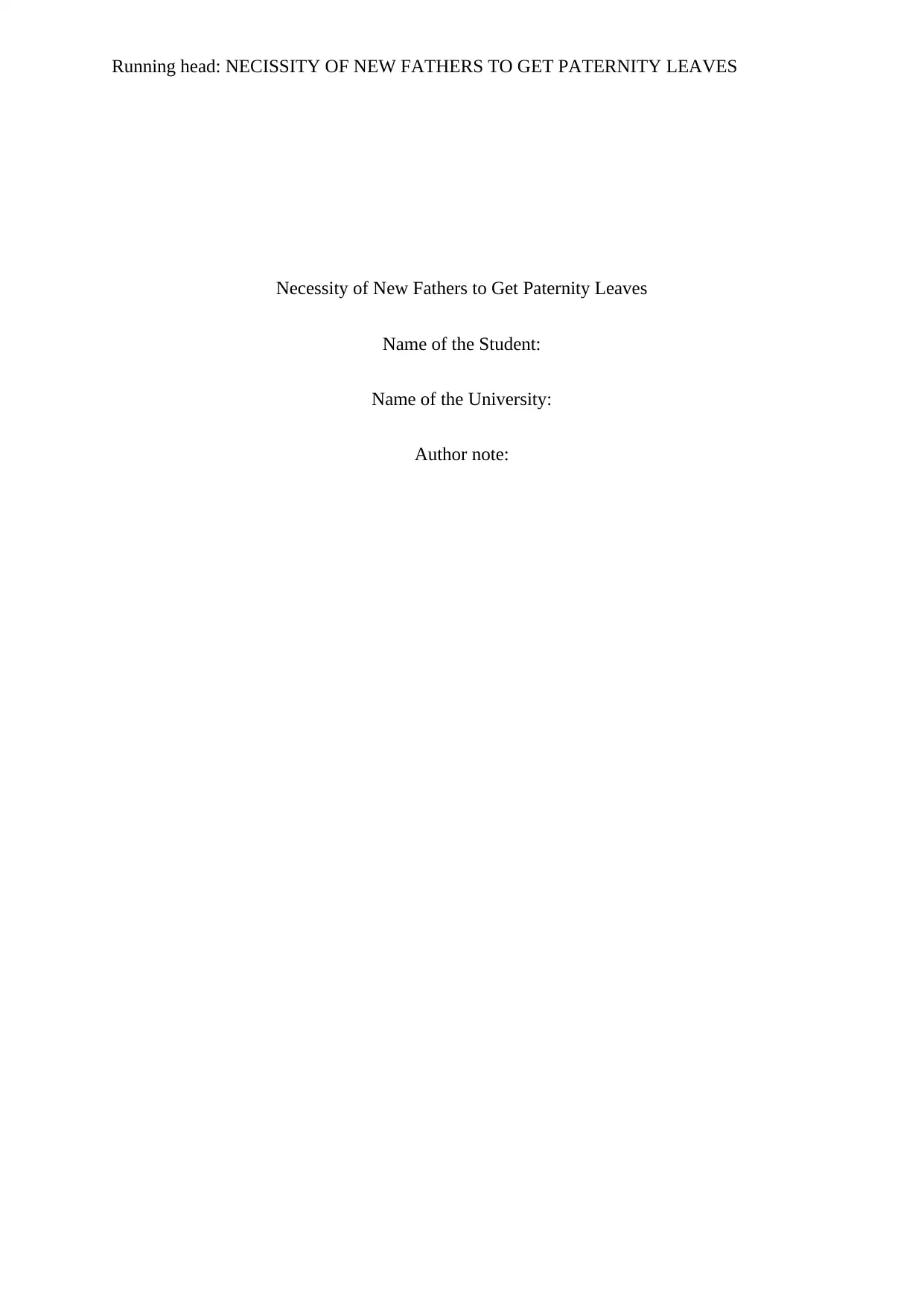
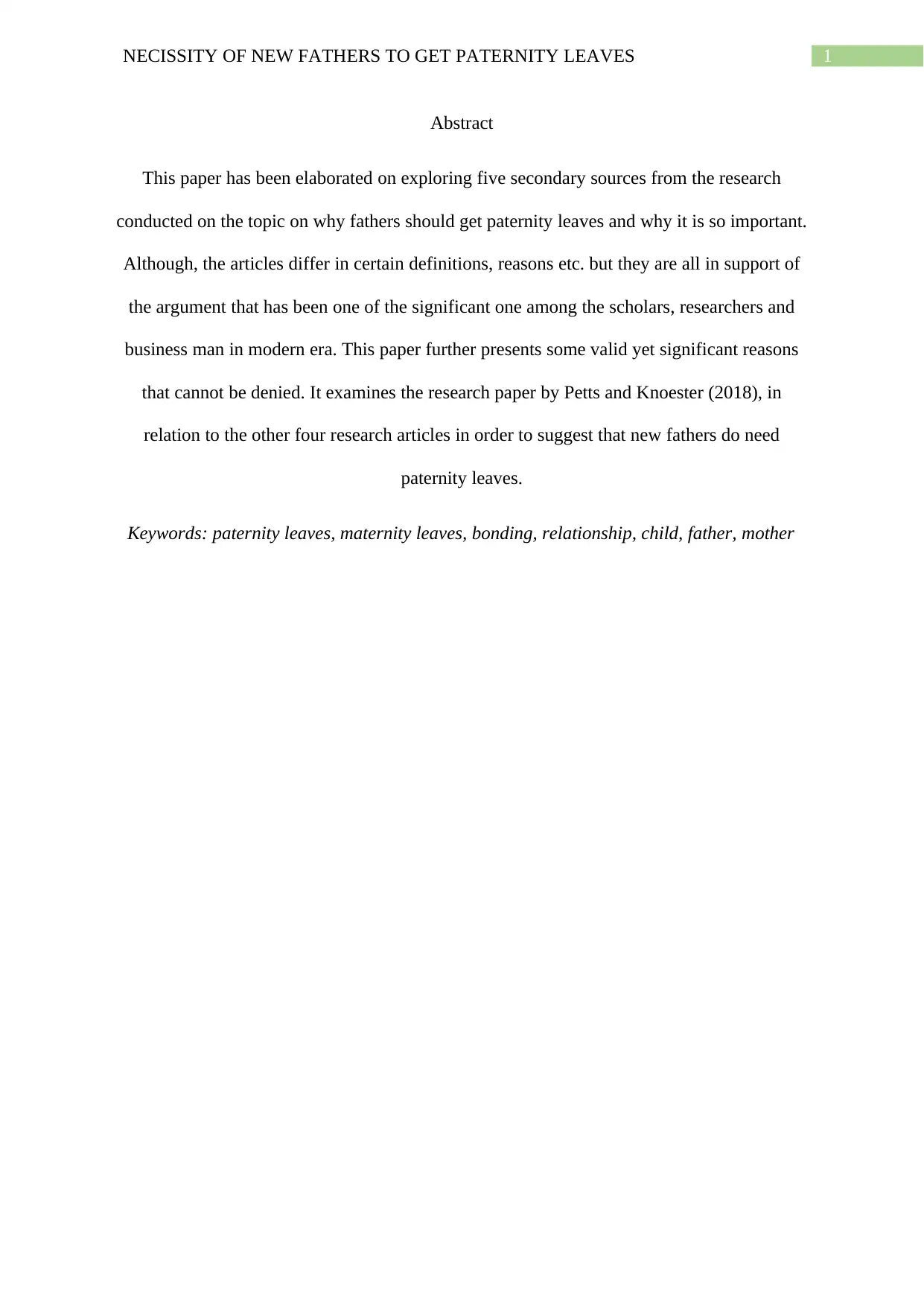
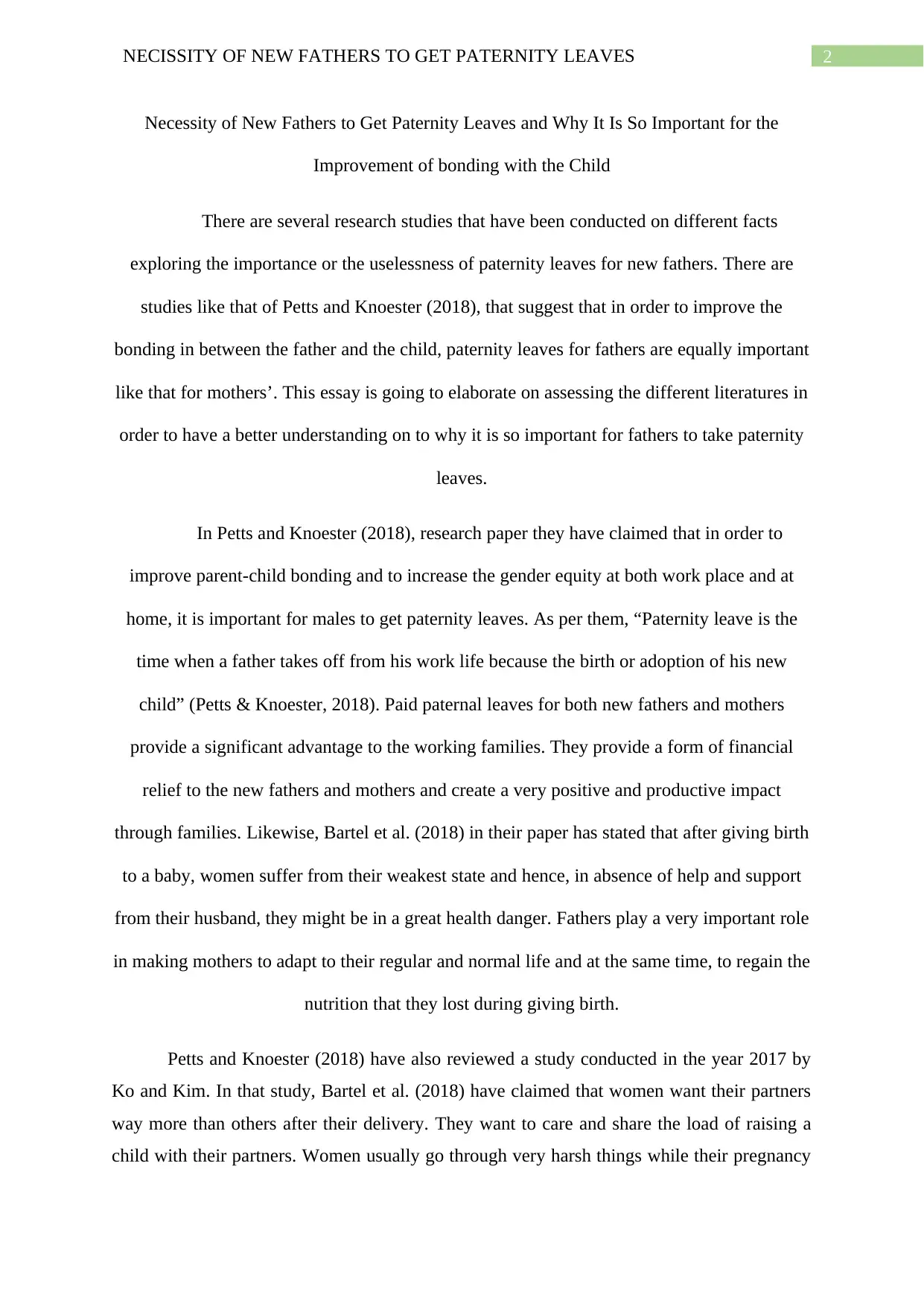
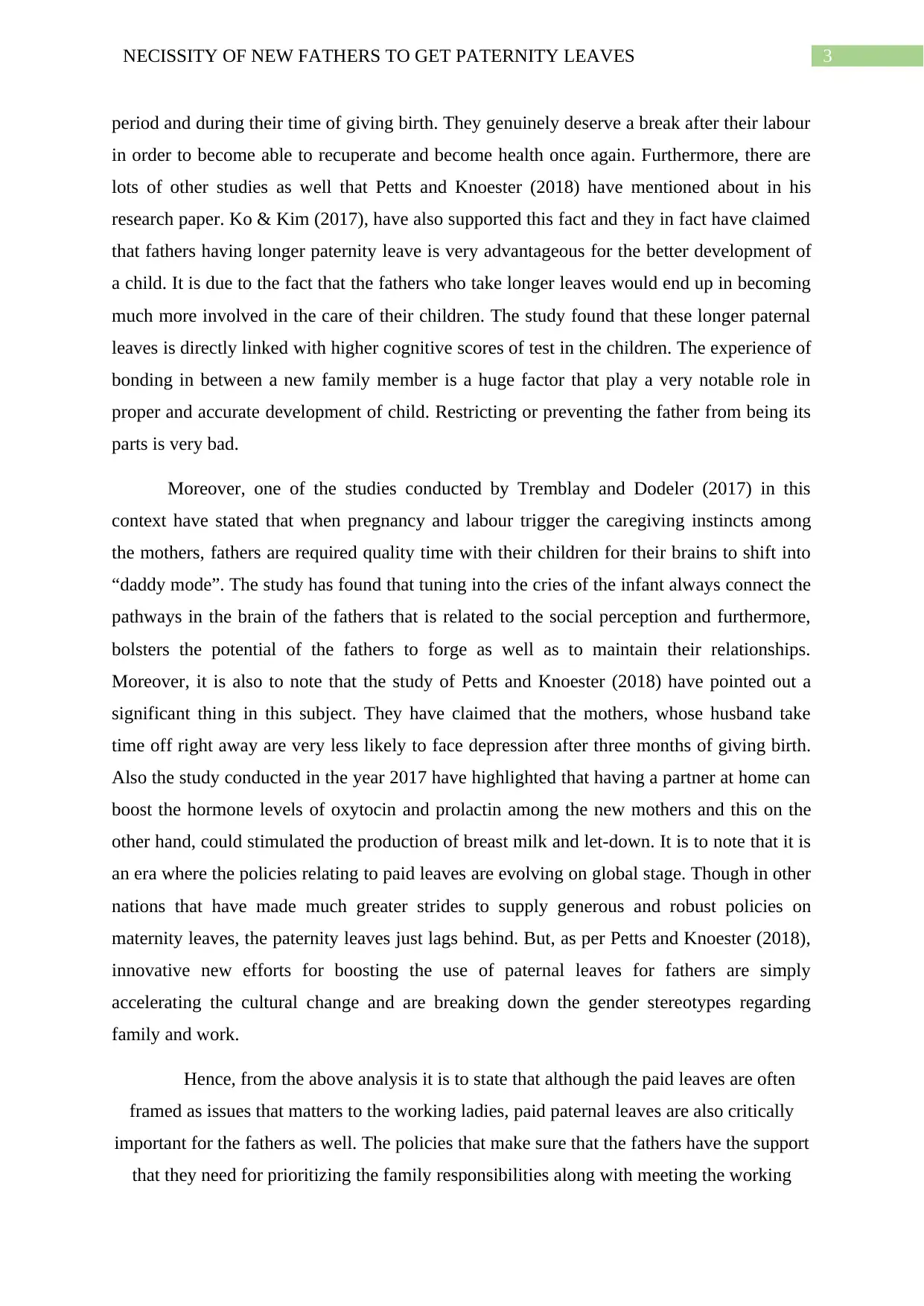
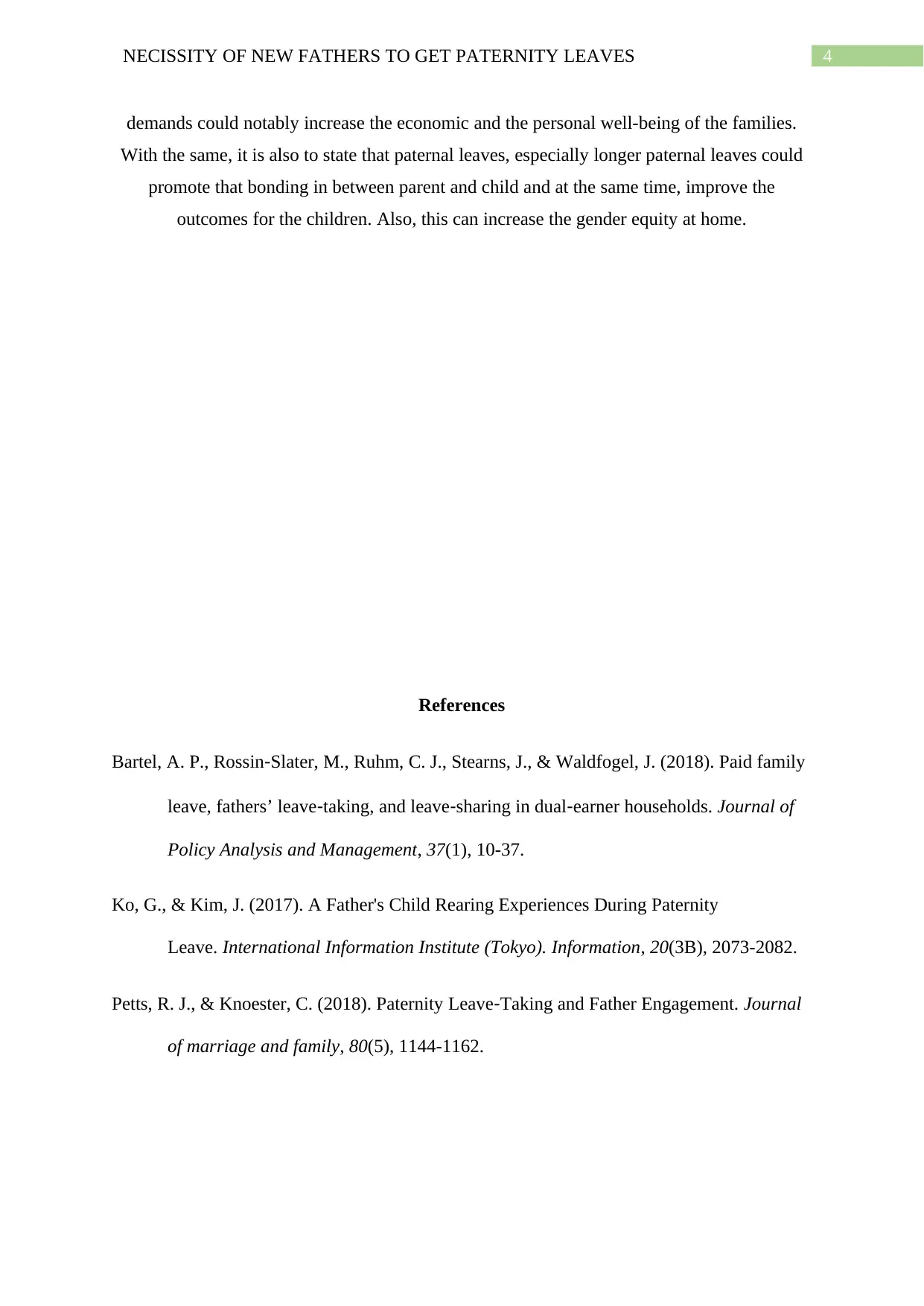






![[object Object]](/_next/static/media/star-bottom.7253800d.svg)